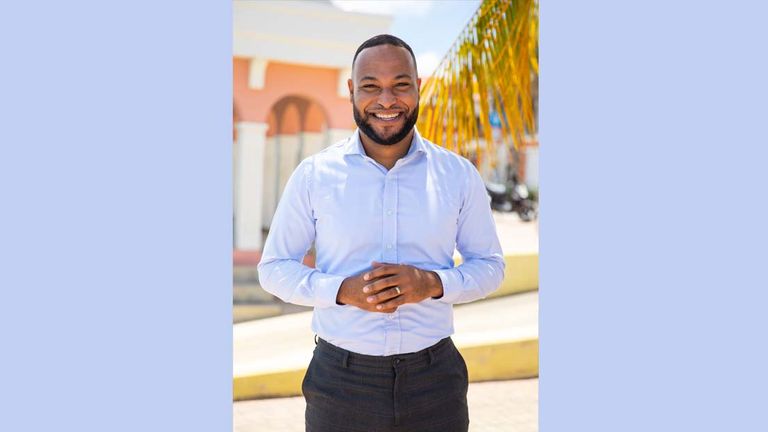The Caribbean’s tourism industry is in growth mode.
That was one of the key messages from this year’s Caribbean Week, an industry event hosted by the Caribbean Tourism Organization (CTO) in New York City from June 5-8.
Considering it was the first time that this (normally annual) event took place since before the pandemic, it’s no surprise that attendees were eager to discuss the positive gains of recent months.
"Our islands continue to get strong and better post-COVID-19,” said Kenneth Bryan, chairman for CTO. “Many islands are doing better than they were in 2019.”
Various tourism officials discussed the symbolism of Caribbean Week as yet another sign of the region’s tourism recovery.
“Being here at Caribbean Week after COVID-19 is very significant for us,” said Latia Duncombe, director general of the Bahamas Ministry of Tourism, Investments & Aviation. “It’s important that the world know that we’re open for business. It’s important for the world to know what’s new in the region.”
 Latia Duncombe, director general of the Bahamas Ministry of Tourism, Investments & Aviation
Latia Duncombe, director general of the Bahamas Ministry of Tourism, Investments & Aviation
Credit: 2023 Bahamas Ministry of Tourism, Investments & AviationUniting the region’s wide array of destinations to deliver a strong, optimistic message is crucial, according to Duncombe.
“The intent and purpose of the CTO is to unite the region in areas of mutual interest, to strengthen the region and share best practices,” she said. “Yes, we’re all different, and in some aspects we do compete for the same visitor profile. But there are so many similarities that we can use to attract the world to the region, so that’s a plus and a benefit.”
It’s important that the world know that we’re open for business. It’s important for the world to know what’s new in the region.
Miles Mercera, CEO of Tourism Corporation Bonaire, agreed about the importance of the event.
“It’s great to be back in New York, especially celebrating the Caribbean,” he said. “It’s always fun to see the collaboration and synergy amongst the islands to share our little corner of the world. This year’s event reminded us how important the North American market is for the Caribbean. The majority of our destinations get a good share of business from this market, and this event shows our commitment and resilience to continue to invest in North America post-pandemic. This year specifically was created to showcase more lesser-known islands, such as Saba and Bonaire.”
Indeed, tourism organizations from various destinations chatted about their latest destination news — from the second-annual Rum Week and first-ever Yoga and Wellness Festival in Bonaire, to the 50th anniversary of the Bahamas as an independent nation, which is being celebrated with a series of major events throughout this year.
Several organizations also hosted their own events to coincide with official Caribbean Week activities. The Anguilla Tourist Board, for example, hosted a “culinary experience” dinner during which officials unveiled a glossy new destination magazine, “Uniquely Anguilla”.The Grenada Tourism Authority, meanwhile, staged a cocktail party to launch a new culinary initiative with James Beard Award-winning chef Alexander Smalls.
Challenges and Opportunities
Attendees also addressed a variety of challenges affecting Caribbean tourism — including hurricane preparedness, sustainability and airlift.
 Miles Mercera, CEO of Tourism Corporation Bonaire
Miles Mercera, CEO of Tourism Corporation Bonaire
Credit: 2023 Tourism Corporation Bonaire
Duncombe praised the news that JetBlue will launch new nonstop service from Los Angeles to Nassau on Nov. 4. To further promote the Bahamas to the western United States, a team of executives from the Bahamas Ministry of Tourism, Investments and Aviation will travel to Southern California this week (from June 14-15) as part of its “Bringing the Bahamas to You” tour, with events in Costa Mesa and Los Angeles.
Mercera also stressed the need for continued development of air service.
"Many of the islands share a common challenge, which is the region's connectivity in general,” he said, noting that Bonaire aims to announce new air service to Bonaire from a key market soon. “We do believe in working collectively on bringing more airlift to the area as a whole to support the culture and Caribbean ties within the region.”
Many of the islands share a common challenge, which is the region's connectivity in general.
Marketing and Sustainability
Mercera says that new marketing tactics were also a hot topic among tourism officials.
"It was great to see that the Caribbean is talking about the new ways of marketing and the way it impacts how we promote ourselves — for example, how the introduction of AI technology changes the landscape,” he said.
Sustainability initiatives, meanwhile, continue to be an important focus for the region, according to Duncombe. The general public can help support such efforts, she explained, by traveling to the Caribbean and supporting local economies — and they can even take part in some efforts themselves.
"When we look at the Caribbean as a region, I want everyone to remember the impact of climate change, and the way that the world can assist outside of the traditional funding is to visit and to enjoy the destination,” she said, noting that in the Bahamas, visitors can assist with activities such as mangrove recovery.